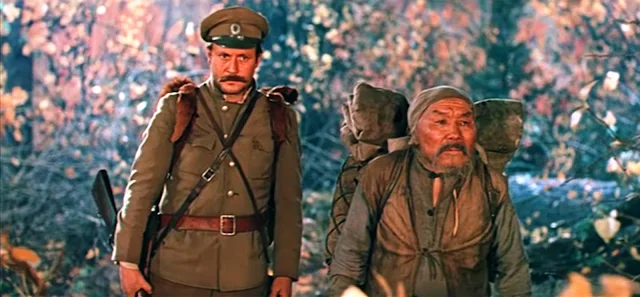 |
| Marlene Dietrich in Shanghai Express |
Capt. Donald Harvey: Clive Brook
Hui Fei: Anna May Wong
Henry Chang: Warner Oland
Sam Salt: Eugene Pallette
Carmichael: Lawrence Grant
Mrs. Haggerty: Louise Closser Hale
Eric Baum: Gustav von Seyffertitz
Maj. Lenard: Emile Chautard
Director: Josef von Sternberg
Screenplay: Jules Furthman
Based on a story by Harry Hervey
Cinematography: Lee Garmes
Art direction: Hans Dreier
Film editing: Frank Sullivan
Music: W. Franke Harling
There's something claustrophobic about Shanghai Express: Its characters are always enclosed -- in train cabins, in interrogation rooms, even in crowds of other people. Even the titular train gets itself into a tight spot, navigating the narrow passage through the streets of what the film calls "Peking." Which makes it all the better for Lee Garmes's camera, tasked as it is with making the most of Marlene Dietrich's face. Garmes (with director Josef von Sternberg looking over his shoulder) always finds ways to frame that face with veils and feathers and furs, with the actress's own hands, with misted windows, and when nothing else will do, a simple shaft of light caressing those eyelids, cheekbones, and lips. Fortunately, the movie is more than glamorous poses: There's a good deal of snappy dialogue and some wily character acting from the likes of Eugene Pallette, Louise Closser Hale, and -- in a role that seems to have been a kind of audition for his most famous one, Charlie Chan -- Warner Oland. I only wish that a leading man more attractive, or less plummily British, than Clive Brook had been provided for Dietrich. The story is nonsense, of course, and it verges dangerously on colonialist poppycock in its treatment of the Chinese, though even there it pulls back somewhat by turning Anna May Wong's Hui Fei from a stereotypical dragon lady into a genuinely heroic figure. It must also be said that Shanghai Express was made at the right time: A couple of years later, the sexual adventurism of its women would have been taboo under the Production Code and Hui Fei would have been made to pay for murdering her rapist.




























